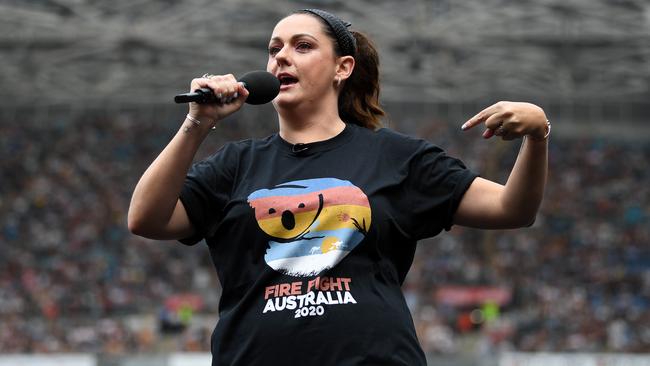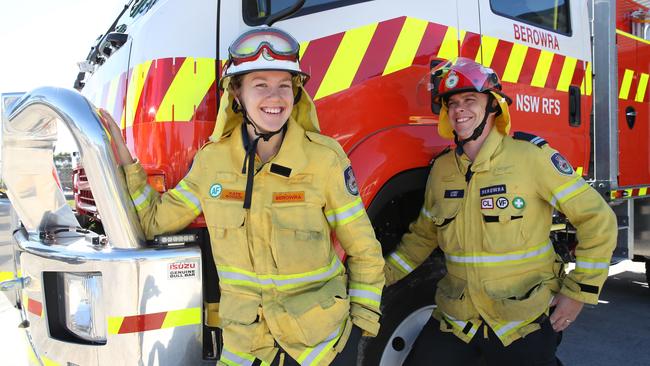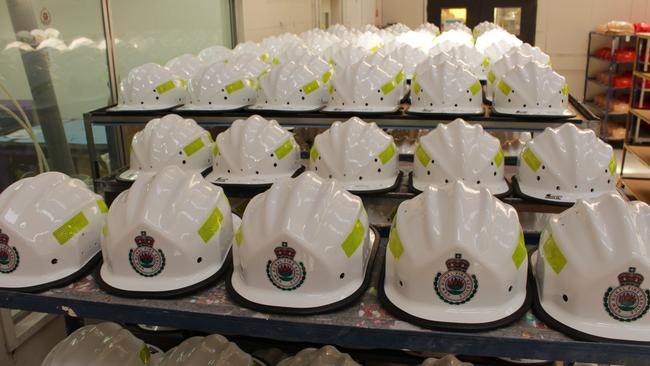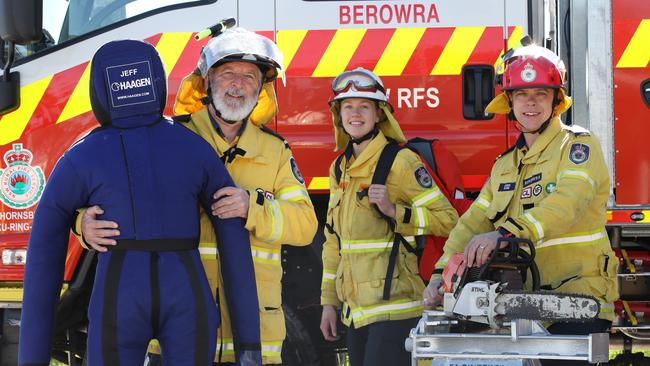2020 bushfires: RFS starting to spend Celeste Barber’s fundraising millions
Almost a year after comedian Celeste Barber helped raise $50m for the Rural Fire Service, the money is finally starting to be spent on new equipment and training gear.
NSW
Don't miss out on the headlines from NSW. Followed categories will be added to My News.
The millions donated during the Black Summer bushfires are finally flooding through the ranks of NSW’s volunteer firefighters.
Ten months after the 2019-20 fire season finished, close to $30 million of the $100 million donated to the NSW Rural Fire Service (RFS) Trust — including money from around the globe to comedian Celeste Barber’s wildly popular fundraiser — has already been spent to make volunteer firefighters safer and more effective.
The $51 million donated to Ms Barber’s fundraiser had become caught in controversy when, once $30 million had been raised, she incorrectly suggested the money could be shared with other states, wildlife groups and victims other than firefighters.
The RFS went to the NSW supreme court for clarity about sharing the donations but it ultimately ruled the money could only go to the RFS.
Now, the RFS has pored through 1600 suggestions from firefighters on how best to spend the donations. It’s going to everything from hi-tech helmets to vastly better communications.

Big ticket items which have also gone out to tender include truck tracking software and GPS equipment called “Mobile Data Terminal” that will run on screens in trucks, which will do away with paper maps and often laborious radio chatter currently relied on during disasters to locate crews, fire fronts and water sources.
The Mobile Data Terminals will integrate with a new computer-aided dispatch system being funded by government, that will enable firefighters to respond to triple-0 calls faster.
The RFS has pledged not to spend donations on anything the government would otherwise supply, although volunteer firefighters have supported some expenditure on revamping kit that would otherwise take years to completely replace.
“We haven’t had a cut from government funding. The donated funds are there for firefighters, who are helping to determine how it is spent,” RFS Inspector Ben Shepherd said.
“The money is providing volunteers with the best equipment so they can provide a better service to their communities.”

For instance, government funds will be spent in the coming months fitting 300 new and old trucks with protective features including halos that spray a fine mist around trucks and crews caught by flames.
However, some brigades have opted to use donated funds to upgrade their trucks with enhancements such as automatically winding hose reels.
Donations have been used on a smartphone app called “RFS Active” that does away with most pagers by notifying firefighters when they are needed on the front line and lets headquarters know how many firefighters they have on the ground and what their qualifications are.
From thermal imaging cameras to mobile reception boosters, the equipment bought with donated money will fundamentally change firefighting in NSW.
From next month $7 million worth of state-of-the-art helmets will be delivered to brigades across NSW, which are not only better built than existing stock and come with face shields but also allow for attachments such as torches, earmuffs and safety goggles.


Hundreds ofbrigades have already accessed a pool of $20 million to best address their specific needs, such as generators to charge phones, fridges and radios when power is cut during a bushfire, and handheld radios for firefighters to communicate from the fire front away from trucks.
The RFS will spend donated money on new face masks for fireys but not until it receives the recommendation of a scientific report studying the best masks for bushfires. There was concern at the peak of the Black Summer bushfires volunteer firefighters’ P2 disposable masks did not adequately protect them from the severe smoke.
“Masks will be bought with donated funds. That will be a significant amount,” Mr Shepherd said. A separate $10 million has been set aside in a benevolent fund to financially support the families of fallen or injured fireys.





